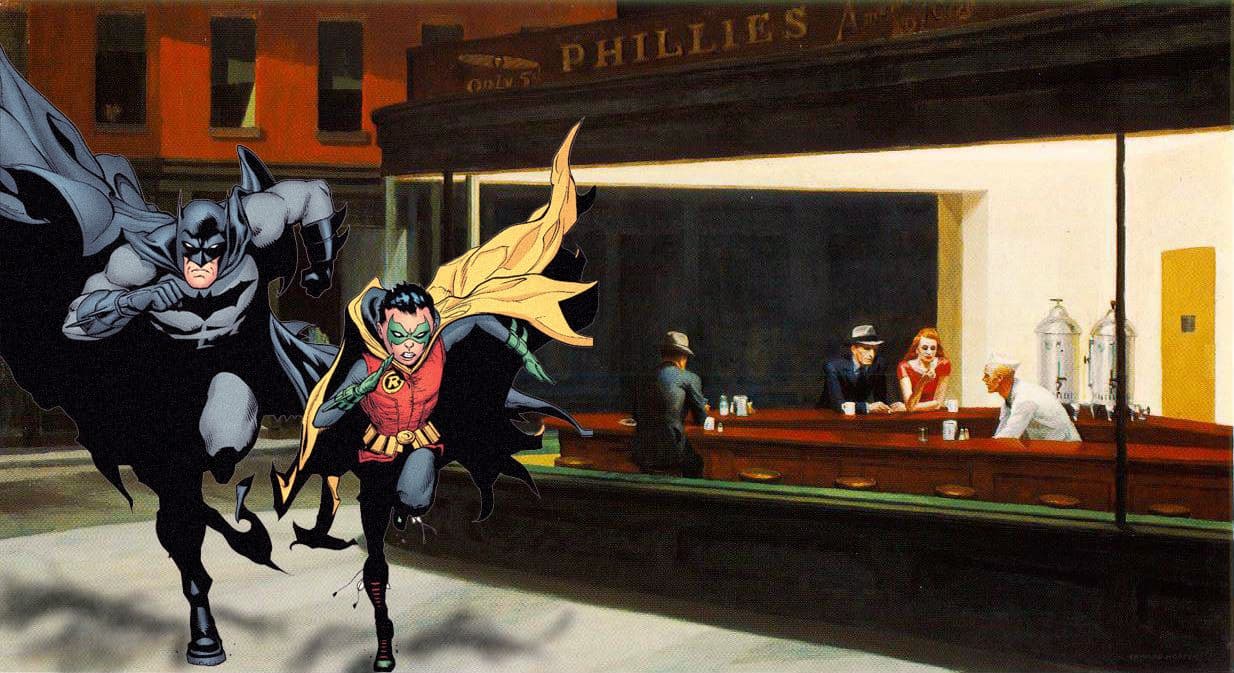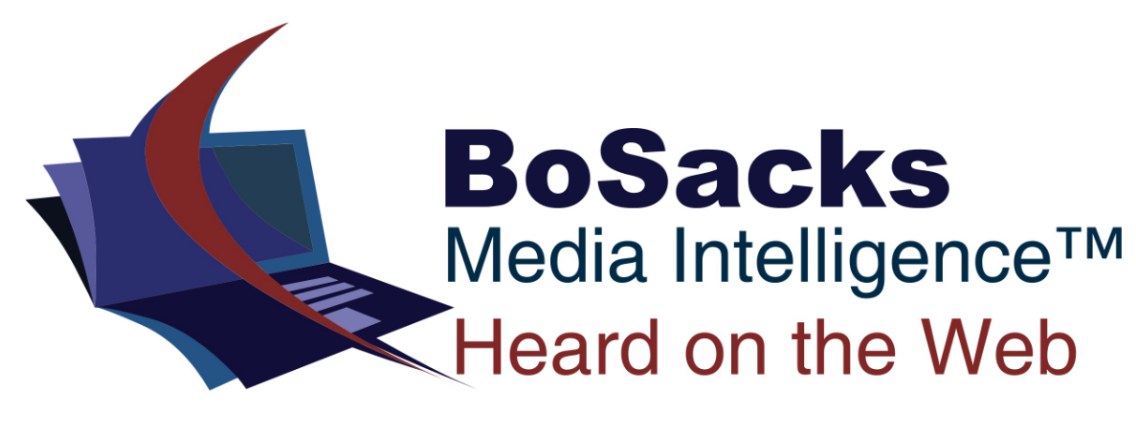The Pandemic Roundtable: A conversation with James G. Elliott president of James G. Elliott Co., Inc. a National Ad Sales Firm
By BoSacks
Thu, Jun 9, 2022

The Pandemic Roundtable, is still ongoing and meeting with industry leaders on your behalf. The roundtable comprising Joe Berger, Sherin Pierce, Gemma Peckham, Bo Sacks, Samir Husni, and Linda Ruth met with James G. Elliott who is president of James G. Elliott Co., Inc. a National Ad Sales Firm started in 1984 with offices in Los Angeles, Chicago and New York. The Elliott Co. is one of the largest independent advertising sales firms for association, trade and consumer magazine media in the United States. The following is our conversation:
JOE BERGER
Jim, please give us some of your background, how you got to the point that you're at now, and then we'll start looking back at the pandemic, and then looking forward at what will, hopefully, be a much brighter future for all of us in the publishing business.
JIM ELLIOTT
There are two companies that I own. One is the James G. Elliott Co., Inc., which is the ad sales company. It sells advertising with a sales force located in NY, Chicago, and LA.
The other company, Ads&IDEAS, is an advertising consulting company with its own list of clients. It also produces a newsletter—Ads&IDEAS.
JOE BERGER
So, the day after the pandemic was formally declared, what were some of the immediate effects?
JIM ELLIOTT
Well, Joe, in very short order, advertisers began to cancel digital buys because of the quick turn-around; it took a bit longer for print. As in past recessions, digital and broadcast went first and print later. And historically, when things got better, shorter lead-time media recovered quicker.
SAMIR HUSNI
So, as you look forward, a lot of things have changed. Most of your work has been with large magazine companies and those large magazine companies are dwindling. What's the plan to sell advertising, considering that the majority of magazines arriving to the newsstands or to the marketplace these days are much, much smaller magazines?
JIM ELLIOTT
Luckily, because we work with large organizations, many had already pivoted to various digital products. And, incidentally, not all our customers are legacy magazine companies.
BO SACKS
So, you're talking about direct to consumer?
JIM ELLIOTT—Yes.
JOE BERGER
It could also be direct to business. My wife works in B2B publishing; they're seeing a lot of their former advertisers cutting back their advertising spend and just developing their own marketing plans that they execute themselves.
JIM ELLIOTT
That's right. And all these folks—whether it be B2B, association, or consumer marketers—want to offset some of the cost. And, of course, one way to do that is via advertising or sponsorship.
BO SACKS
Would you care to address programmatic?
JIM ELLIOTT
Yes, the race to the bottom? Publishers may welcome the incremental revenue, but it comes with a big cost. Sometimes that cost is loss of direct business. This is not insignificant. It also creates issues of brand safety for advertisers, and it often results in advertising that is inappropriate to the editorial content. And then there is the issue of fraud…and emerging third-party restrictions.
BO SACKS
But let's not discount the fraud.
JIM ELLIOTT—Yes, absolutely, Bo. That’s huge.
JIM ELLIOTT
Now to a new subject, we do an ongoing study of media planning and buying at ad agencies. We just released our fourth study, in conjunction with SRDS and Readex Research. It shows what is going on in the media departments, which—no surprise—have experienced significant cutbacks. And probably on the creative side also. Much of the creative product lately is pretty poor, in my opinion.
SHERIN PIERCE
Yes, right? Uninspired!
JIM ELLIOTT
I think you're going to see a resurgence of creativity from agencies; it is the way for them to survive. Creative for programmatic advertising isn’t the way forward. That is why some publishers have decided to create brand studio efforts.
BO SACKS
I'm not as optimistic as you are that there is a bottom, because of greed—there's so much money being made in programmatic. And it's hard to imagine that tree drying up.
SHERIN PIERCE
And the advertisers themselves who don't value direct sales versus programmatic think, “Well, I'm getting this and it's so much more affordable!” But who is really seeing your ad? During the pandemic, The Old Farmer’s Almanac got something like 20 million page views a month—it went through the roof. We would prefer to sell directly to the advertisers, but so many of them buy programmatically. They say, “It's more affordable.” It's just unbelievable.
SAMIR HUSNI
Jim, how do you answer the folks that say, “With the amount of data companies have, why do they need a third-party to reach their customers? A company like Ralph Lauren or Toyota can reach me dynamically and may give me offers and give me things? Why do they need to advertise since they know more about me than the publication, the magazine, or the website knows about me”?
JIM ELLIOTT
I would answer that Toyota has been publishing a magazine, or did heretofore, for a long time. A price message alone does not sell Toyota; you need brand advertising. An Internet price ad doesn't do that work for you. And you need to find new customers outside of Toyota’s list. Magazines have always been a way to explain and differentiate one product from the next. You have long body copy and pictures in a compatible reading environment.
SAMIR HUSNI
I say all the time that ads in magazines are not an eyesore; they belong to the brand. They are part of the real estate. Online, ads that have nothing to do with what I'm reading will pop up.
JOE BERGER
Beyond that, to go back to your original question, Samir, wouldn't part of it also just be a question of expertise? Don’t you want an agency to reach beyond what you can do on your own?
JIM ELLIOTT
When I started my career at Ogilvy & Mather, we went through rigorous training—something missing today. At that time, they drummed into us that a brand needs to use multiple media because each medium works differently. So, we would sit with the creatives and strategize. How did broadcast work with print in a holistic way? We created advertising appropriate for each medium but within a messaging overview. Today, I see online advertising, particularly programmatically generated, as price advertising.
SAMIR HUSNI
How do you respond to the people that tell you, “Oh, we love digital because we can actually have the data, we can document the data, but in print, who knows”?
JIM ELLIOTT
Well, I’ll refer right back to what Bo Sacks said 15 minutes ago about fraud. Do we really think Twitter is the only organization with fake account metrics? Ad Tech doesn’t deliver trustworthy measurements—they just don't. Checking everything for accuracy would be expensive; they don't have to hire staff to do this. And, by the way, there has been much written about the meaningfulness and usefulness of the data collected.
SAMIR HUSNI
Jim, why do you believe in the effectiveness of a print newsletter in this digital age?
JIM ELLIOTT
I can't tell you how many people have called me over the years who have a print copy of Ads&IDEAS. And the reason is, I'm one of the few people spending the money to print it and mail it. We also have a digital version you can download from our website but, you know what? People read the print version.
BO SACKS
Direct Mail works.
JIM ELLIOTT
Yes, they read it. Somebody called me recently who said they’ve had the newsletter on their bulletin board for a year and a half and that they wanted to call and finally did, so I think it works just fine. Print is interesting.
What is the job to be done here? For me, it is to have digital and print publishers call me.
JIM ELLIOTT
I remember, so clearly, something that occurred when I was a guest of Dr. Samir Husni at Ole Miss. When I was looking around the school, I saw all these kids with their newspaper, The Mississippian, in one hand, and they’ve got their Mac computers, and their iPhones with earbuds. And they're doing this all at the same time. None of these young adults were sitting there saying, “Geez, I hate newspapers or magazines”—they were just flowing through the media and their devices.
BO SACKS
That's very funny. It's a great observation. I was just at the Niche Publishing Conference, and I can’t tell you how many people were handwriting notes. It was striking.
JIM ELLIOTT
Bo Sacks said—and I think he was wrong only in his timing—that we were entering the Golden Age of publishing. But, Bo, I think you are going to be right soon. I think you're going to see a change now, regardless of platform.
BO SACKS
And 25 years ago, I phrased it this way, “We're in the information distribution business, formerly known as publishing.”
SAMIR HUSNI
I call the stuff on digital now, “telezines.” We have magazines, which are ink on paper, and telezines, which are online and digital.
BO SACKS
So, Jim, we're both optimistic about the future of ad agencies and media distribution, right?
JIM ELLIOTT
Yes, I think that agencies will have to make a change here but will do so. And I think distribution is an issue, but it will resolve. I'm optimistic about that.
SAMIR HUSNI
But my main problem is this—and let me know if you agree or disagree—is that you are putting your information at the mercy of something you don't own, on something you have no control over.
JIM ELLIOTT
This observation goes to the job to be done. Much of what is in print and online isn’t worth saving. And regarding the argument that you don’t own the data, you never did. You owned a reproduction of the data.
BO SACKS
I own, in theory, over 200 audiobooks. But that could just dissolve in a minute. If Audible goes out of business, changes its paradigm, or gets sold, the consumer can get screwed. And it has happened.
JOE BERGER
So, are you suggesting, Jim, that—for example—if I decided to download an NFT version, say of a National Geographic premiere issue, that it becomes my premiere issue, as opposed to buying the SIP that's sitting on the newsstand?
JIM ELLIOTT
